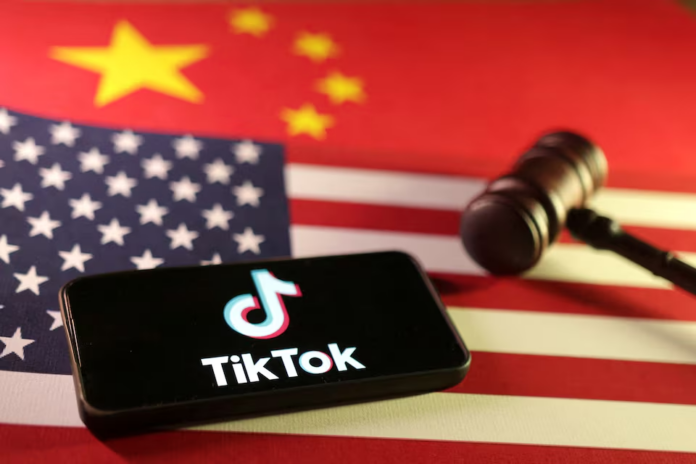The U.S. Supreme Court on Friday appeared inclined to uphold a law mandating the sale or ban of TikTok by Jan. 19, citing national security risks linked to the app’s Chinese ownership.
During 2.5 hours of arguments, the justices questioned TikTok’s lawyers and U.S. government representatives about potential Chinese exploitation of the platform to spy on Americans or influence public opinion, while also considering First Amendment free speech concerns.
Chief Justice John Roberts challenged TikTok’s lawyer Noel Francisco, asking, “Are we supposed to ignore the fact that the ultimate parent is, in fact, subject to doing intelligence work for the Chinese government?” Francisco defended the app, calling it a vital platform for American speech and arguing the law’s true target was “the speech itself.”
He warned that without a divestiture, TikTok would shut down on Jan. 19, describing the law as unconstitutional under the First Amendment.
The case arises amid heightened U.S.-China tensions, with the Biden administration backing the law, citing risks from TikTok’s access to data from 170 million American users. U.S. Solicitor General Elizabeth Prelogar emphasized, “The national security harm arises from the very fact of a foreign adversary’s capacity to secretly manipulate the platform to advance its geopolitical goals.”
Some justices, including conservative Brett Kavanaugh, raised concerns about long-term risks of China using TikTok’s data. “What about using that information over time to develop spies, to turn people, to blackmail people… people who a generation from now will be working in the FBI or the CIA?” Kavanaugh asked.
Francisco, representing TikTok and its parent ByteDance, asked the court to at least pause the law, highlighting the impending transition to Donald Trump’s administration on Jan. 20. “At least as I understand it, we [TikTok] go dark on Jan. 19 unless there’s a divestiture,” he said, urging a temporary hold to allow the incoming administration to seek a political resolution.
Justice Elena Kagan raised a Cold War-inspired analogy, questioning whether Congress could have forced the American Communist Party to sever ties with the Soviet Union. Francisco further argued that Congress lacked authority to compel divestiture, likening it to hypothetical government control of a major U.S. newspaper.
Prelogar countered, stating that foreign control of a major communication platform posed an unprecedented risk. “TikTok’s immense data set on American users gives China a powerful tool for harassment, recruitment, and espionage,” she said, underscoring the gravity of the threat.
The court floated issuing an administrative stay to temporarily freeze the law while justices deliberate. The decision, expected before Jan. 19, will have significant implications for TikTok’s future and broader U.S.-China trade relations.




